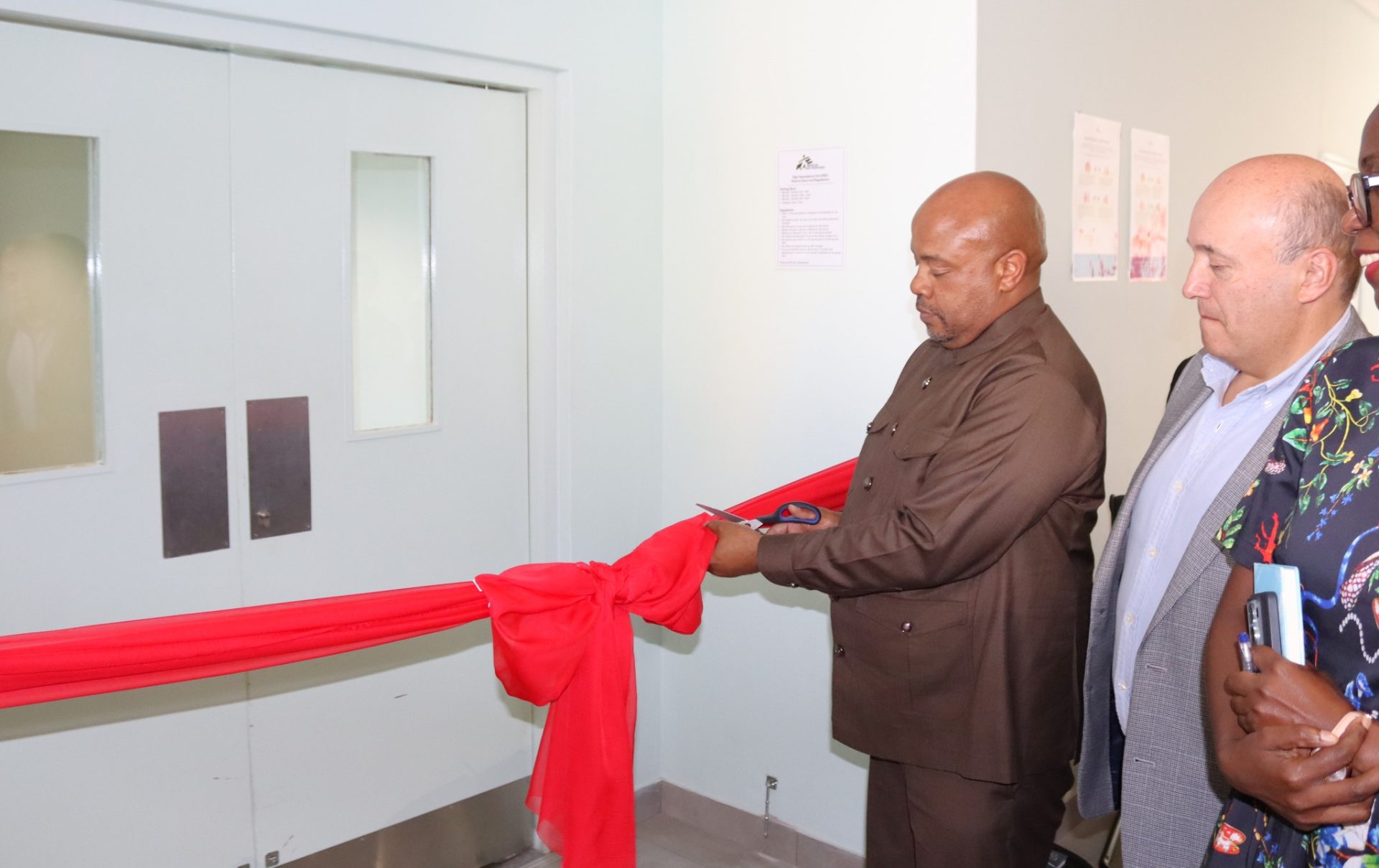by Ncaba Ntshakala
Commendable!
The Minister of Health, Mduduzi Matsebula, has hailed the launch of the new High Dependency Unit (HDU) as a vital milestone in reducing hospital mortality rates among patients with complications of non-communicable diseases (NCDs).
The Minister was speaking during the official opening of the HDU and an ambulance handover by Médecins Sans Frontières (MSF) at Manzini Government Hospital.
Matsebula emphasized that the new unit would enhance the provision of critical care services, ensuring better access to medical care for patients in need of specialized attention.
The six-bed HDU is designed to manage patients requiring critical care, particularly those battling NCDs such as heart disease, diabetes, and respiratory conditions.
RELATED: Eswatini building a healthier Nation with vegetables
It will serve as an intermediary between regular hospital wards and intensive care units (ICUs) which provides a step-down care for ICU patients and offering specialized treatment for those not meeting ICU criteria but still in need of high-level medical support.
Matsebula highlighted the HDU’s contribution to timely patient referrals to other tertiary medical facilities with ICUs, the competency development of healthcare staff in critical care, and the overall enhancement of healthcare quality within the country.

“This unit will provide timely referrals of patients to intensive care units of other tertiary medical facilities and develop the competency required in providing critical care services,” said the Minister.
In addition to the launch of the HDU, Matsebula expressed gratitude to MSF for donating an E786,000 ambulance to the Ministry of Health.
The ambulance will strengthen the nation’s capacity to deliver high-quality medical care, particularly for patients requiring inter-hospital transfers and external referrals.
“I am confident this ambulance will enable high-quality medical service delivery to clients requiring inter-hospital transfers and external referrals,” Matsebula said.
MSF, also known as Doctors Without Borders, has played a major role in Eswatini’s healthcare system since 2007, initially focusing on tackling the HIV/TB epidemic in the Shiselweni region and later extending their efforts to combat Covid-19.
RELATED:
“Our partnership has further given birth to a much-needed clinical service, the establishment and operations of the High Dependency Unit,” Matsebula added.
The Manzini Government Hospital, where the HDU is located, has undergone a vast transformation since its inception in 2022 according to the Minister.
Originally repurposed from the National TB Hospital during the height of the Covid-19 pandemic, the hospital now provides oncology and chemotherapy services.
The addition of the HDU was hailed to mark the second phase of its development which is focused on expanding services for NCD patients.
The final phase will see the provision of specialized services, including radiotherapy and surgical oncology.
Moreover, Matsebula when sharing these developments, emphasized the Ministry’s dedication to strengthening the healthcare sector and fulfilling His Majesty King Mswati III’s vision for a healthy nation.
He praised the Ministry’s collaboration with international partners like MSF, saying, “Today, we are witnessing MSF’s continued commitment to contributing to a stronger and resilient health sector.
These developments are a testament to how much the Ministry of Health adheres to His Majesty King Mswati III’s call of Nkwe! in ensuring a healthy emaSwati nation.”

The Minister concluded by urging continued cooperation between the Ministry and its development partners to combat the rise of NCDs in Eswatini.
He acknowledged the critical support provided by organisations like MSF, which have played a key role in advancing healthcare initiatives during a challenging period for the health sector.
“I also would like to use this opportunity to thank all our development partners for backing us and helping us as we navigate this trying period in the health sector,” said Matsebula.


